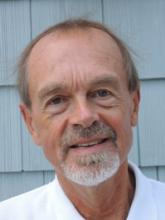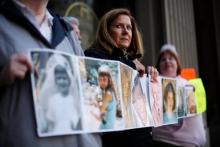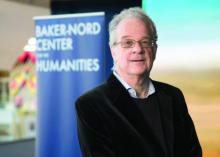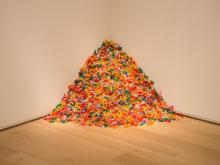2017 Walter A. Strauss Lecture Series: Too Many Aims?
Mon, Nov 27 2017, 5:00 PM

Celebrated philosopher Philip Kitcher of Columbia University is known for his studies of the role of scientific inquiry in democratic societies from the perspective the philosophy of pragmatism associated with William James and John Dewey. In a series of three lectures on “Education and Democracy,” Kitcher broadens this inquiry to investigate the aims of education with emphasis on the importance of the humanities and the arts. This lecture series, in memory of Walter A. Strauss (1923-2008), who was the Elizabeth and William C. Treuhaft Professor of Humanities, is generously supported by funds provided by the Paul Wurzburger Endowment.
2017 Walter A. Strauss Lecture Series: Shaping the Citizen
Wed, Nov 29 2017, 5:00 PM

Celebrated philosopher Philip Kitcher of Columbia University is known for his studies of the role of scientific inquiry in democratic societies from the perspective the philosophy of pragmatism associated with William James and John Dewey. In a series of three lectures on “Education and Democracy,” Kitcher broadens this inquiry to investigate the aims of education with emphasis on the importance of the humanities and the arts. This lecture series, in memory of Walter A. Strauss (1923-2008), who was the Elizabeth and William C. Treuhaft Professor of Humanities, is generously supported by funds provided by the Paul Wurzburger Endowment.
Faculty-Work-in-Progress – Sacred Protests: Politics and Faith after Sexual Abuse
February 1st, 2018

In the wake of Boston, 2002, survivors of Catholic clergy sexual abuse have been empowered to come forward with their stories of suffering. Yet from the ashes of their collective trauma, abuse survivors have built a robust agenda of political and religious reforms. In this lecture, Brian Clites, Instructor in the Department of Religious Studies, takes us on an ethnographic exploration of Catholic abuse survivors’ protests, examining not only the reforms that victims seek but also the conflicting emotions that they feel towards their church. Even as some survivors continue to kiss their Cardinal’s rings, others harbor fantasies of murder and revenge.
2018 Baker-Nord Distinguished Faculty Lecture – Thomas Hart Benton, Jackson Pollock, and the Secrets of El Greco
February 7th, 2018

Many of those who have been skeptical about Jackson Pollock’s work have done a double-take when they’ve encountered Pollock’s early drawings after El Greco, which employ an analytical approach he learned from his first and only teacher, Thomas Hart Benton. They reveal that Pollock’s mature work was based on a deep understanding of the compositional methods of the old masters. Interestingly, they also shed light on El Greco’s own working methods, and on the factors that led to the invention of El Greco’s signature artistic style.
Job Correspondence Writing for Humanities Majors
February 19th, 2018
Location: Writing Resource Center, Bellflower Hall 102
This workshop is part of a series designed to offer Humanities majors the opportunity to improve their professional writing skills. This session will focus on writing job correspondence including cover letters and thank you notes. It will include a presentation and workshop time to review and/or work on documents. Whether you’re starting from scratch or have existing materials, this series aims to give you tools that will enhance the written documents needed for pursing your career.
Graduate Student Work-in-Progress – Thinking Like a Virus: Rhetoric, Aesthetics, and AIDS Literature
February 22nd, 2018

What does it mean to call a text “AIDS Literature”? What is the effect of applying this label to a text that does not attempt a faithful representation of the AIDS Crisis of the 1980s and 1990s, but instead deploys HIV and AIDS as literary metaphors? By analyzing texts such as the later experiments of William S. Burroughs, the novels of Kathy Acker, and the artwork and memoirs of David Wojnarowicz, English PhD Candidate Michael Chiappini seeks to trouble the prevailing understanding of AIDS literature by refocusing our attention to texts that do not aspire to narrative fidelity to the Crisis, but instead employ HIV and AIDS for the sake of artistic experimentation.
Undergraduate Student Event – Humanities@Work: Non-Profits
February 26th, 2018

Location: Clark Hall Room 206, 11130 Bellflower Road, Cleveland, OH 44106
At this event for undergraduate students, panelists working in the non-profit sector will discuss how studying the humanities influenced their careers and answer questions from the audience. Panelists include:
Faculty-Work-in-Progress – Designing Power: The Women of The Fashion Group and the Promotion of Feminist Style During the 1930s and 1940s
March 6th, 2018
During the interwar period, the fashion industry offered women more possibilities to gain positions of power and influence within the business. In 1930, The Fashion Group—an all-female organization of prominent women in the fashion business—was founded as a forum to promote the American fashion industry and women’s role in it. In its activities and publications, the Fashion Group managed to popularize ideas about women’s freedom and contributed to the mainstreaming of feminism in the popular media through the rise of the “American Style” that imagined the modern fashion consumer as economic independent, physically mobile woman seeking both style and comfort. In her talk, Einav Rabinovitch-Fox, a Visiting Instructor in the Department of History, focuses on the role of the Fashion Group as a facilitator for women’s empowerment in the fashion business and highlights the presence of feminist networks in the post-suffrage period and their role in redefining feminism during this time. It argues that the commercialization of feminism through the emphasis on clothes and appearance did not necessarily lead to its cooption and ultimate demise, but offered alternative routes through which women could claim a voice and influence.
Grant Writing for Humanities Majors
March 19th, 2018
This workshop is part of a series designed to offer Humanities majors the opportunity to improve their professional writing skills. This session will focus on the grant writing skills needed when applying for fellowships, funding and awards. It will include a presentation and workshop time to review and/or work on documents. Whether you’re starting from scratch or have existing materials, this series aims to give you tools that will enhance the written documents needed for pursing your career.
No Más Bebés: Film and Conversation with Producer/Researcher Virginia Espino
March 21st, 2018

They came to have their babies. They went home sterilized. So begins the incredibly moving tales of the women chronicled in No Más Bebés(No More Babies), a heartbreaking documentary film based on the research of Latinx historian Virginia Espino. This is the story of Mexican immigrant mothers who sued Los Angeles county doctors, the state and the federal government after they were sterilized while giving birth in the 1970s. Led by an intrepid young Chicana lawyer, the mothers faced public exposure and stood up to powerful institutions in the name of justice. Jessie Hill, CWRU School of Law Associate Dean of Academic Affairs, will introduce the film and moderate a discussion with Espino following the screening.
- Home
- Events
- Past Events
- 2017-2018

